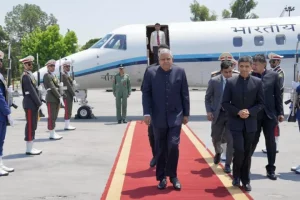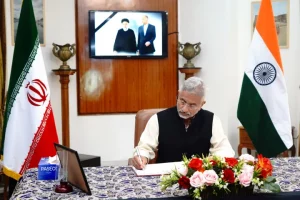Amid rising geopolitical tensions that have pushed up global oil prices, all eyes are now on Iran. Though in the last few days, global oil prices have somewhat eased though analysts predict that the prices could breach the $100 a barrel level if the Iran deal does not see the light of the day. On Friday, Brent crude prices eased to around $92.7 a barrel after breaching the $100 a barrel level on Wednesday.
Indications that Iran may soon return to the international oil market. While the normal supply could take some time of an additional half a million barrels could be added daily between April and May while another 800,000 bpd could come up by the end of the year, energy news portal Oil Price said quoting a Citi report.
This will have huge implications for India, which imports over 80 per cent of its total oil requirements.
Also read: Ukraine tensions: Russia accuses West of indulging in information war based on 'outright lies'
If global prices increase, India’s import bill goes up. While high crude oil prices have always been a cause for concern for Indian policymakers, it is particularly worrisome amid the ongoing Covid 19 pandemic prompting New Delhi to carve out several social sector schemes. Higher global oil prices would make petrol and diesel more expensive, which in turn will have an impact on inflation, something India needs to be watchful about.
Before Washington imposed sanctions on Iran for its nuclear energy programme during former US President Donald Trump's term, India along with South Korea and China were the top three importers of Iranian oil.
However, post the sanctions, India had to halt its oil imports from Iran.
But “if the Iran deal is reached, the oil rich nation could add half a million barrels daily to global supply between April and May and another 800,000 bpd by the end of the year,” Oil Price said quoting a Citi report.
"If a deal is struck, Iran could ramp up "crude and condensate production within four to six months, or even quicker as Iran is thought to have robust oil-on-water storage," news agency Reuters quoted Rystad Energy analyst Louise Dickson as saying.




















